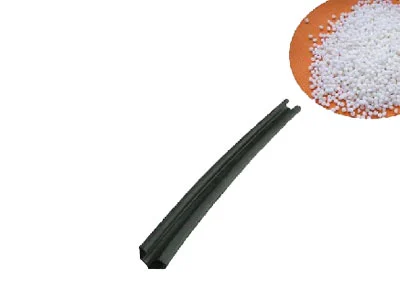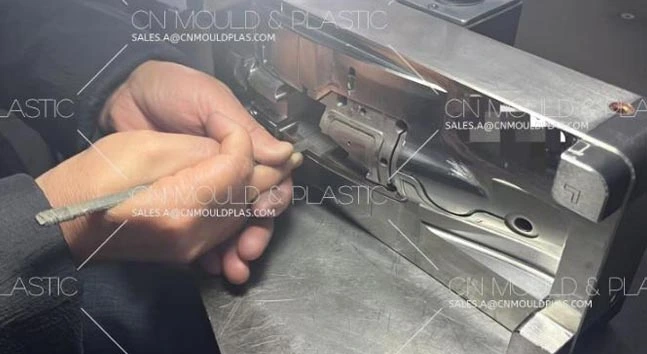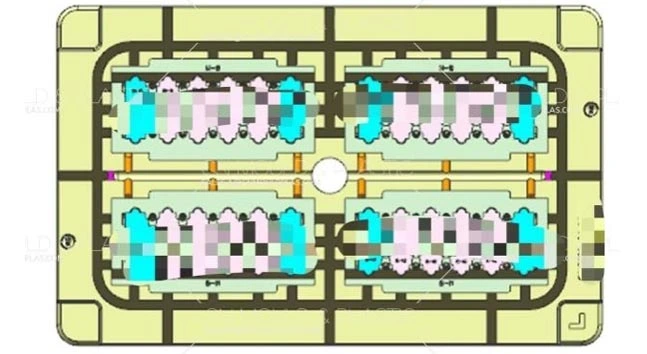12-30
(1) Drawbacks of Polishing Quality Issues1) The edge of the cavity’s inner hole may have collapsed corners, mixed angles, or bruises, and after polishing, the opening of the inner hole may enlarge (c...
Thermoplastic Vulcanizate (TPV) is a combination of plastic and rubber properties, which has the aging resistance of rubber materials. Besides, TPV has excellent rebound, which can meet the requirements of high rebound products and small compression deformation. Surface of TPV has rubber soft touch, and its color can be customized according to customer needs such as matte, high gloss and silicone. The material is widely used in the field of building sealing strips, automotive sealing products, wire and cable fields.

| TPV | Santoprene™ 111-35 | Santoprene™ 8211-35 | ALFATER XL A40I 3EF0001 | Santoprene™ 111-45 | Unit | Testing Standard |
| Data sheet | Click to Download | Click to Download | Click to Download | Click to Download | ||
| Manufacturer | ExxonMobil | ExxonMobil | ALBIS | ExxonMobil | ||
| Description | A soft, black, versatile thermoplastic vulcanizate (TPV) in thethermoplastic elastomer (TPE) family. This material combines goodphysical properties and chemical resistance for use in a wide rangeof injection molding applications. This grade of Santoprene TPV isshear-dependent and can be processed on conventional thermoplastics equipment for injection molding. It is polyolefin based and recyclable within the manufacturing stream. | A soft, colorable, non-hygroscopic thermoplastic vulcanizate (TPV) inthe thermoplastic elastomer (TPE) family. This material combines good physical properties and chemical resistance for use in difficult injection molding applications. This grade of Santoprene TPV is shear-dependent and can be processed on conventional thermoplasticsequipment for injection molding. lt is polyolefin based and recyclable within the manufacturing stream. | High flow,high surface quality,UV stabilised,good weathering resistance,resistant to alkalis,resistant to ozone,resistant to hot air | 1.Recommended for applications requiring excellent flex fatigue resistance. 2.Excellent ozone resistance. 3.UL listed: file #QMFZ2.E80017, Plastics - Component; file#QMFZ8.E80017,Plastics Certified For Canada - Component. 4.Although not NSF certified, this product has a Material Supplier Form on file with NSF to facilitate its evaluation for use in applications requiring NSF certification. 5.Used in sealing applications. | ||
| Appearance | Black Color | Natural color | Black Color | Black Color | ||
| UL Yellow Card | E80017 | / | / | E80017 | ||
| Physical | Dry | Dry | Dry | Dry | Unit | Test Method |
| Density | 0.93 | 0.93 | 0.93 | 0.96 | g/cm³ | ASTM D792 |
| Hardness | Dry | Dry | Dry | Dry | Unit | Test Method |
| Shore Hardness Shore A, 15 sec, (23°C) | 38 | 38 | 40(ISO 7619-1) | 49 | / | ISO868 |
| Mechanical | Dry | Dry | Dry | Dry | Unit | Test Method |
| Tensile Stress at 100% - Across Flow | 1 | 1 | / | 1.4 | MPa | ASTM D412 |
| Tensile Strength at Break - Across Flow | 2.9 | 2.9 | 18(kN/m, ISO 34-1) | 3.5 | MPa | ASTM D412 |
| Elongation at Break - Across Flow | 330 | 350 | / | 340 | % | ASTM D412 |
| Compression Set 73°F(23°C), 22 hr, Type 1 | 10 | 10 | / | 11 | % | ASTM D395B |
| Thermal | Dry | Dry | Dry | Dry | Unit | Test Method |
| Brittleness Temperature | -63°C | -65°C | / | -62°C | °C | ASTM D746 |
| Flammability | Dry | Dry | Dry | Dry | Unit | Test Method |
| Flame Rating | HB | / | / | HB | / | UL94 |

